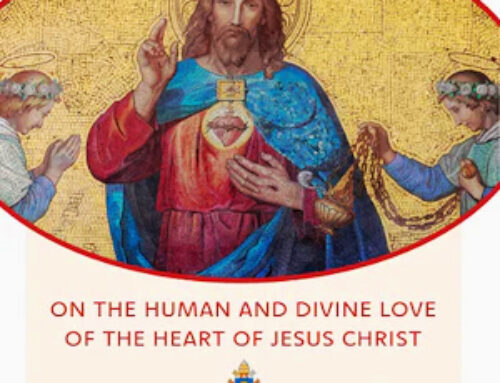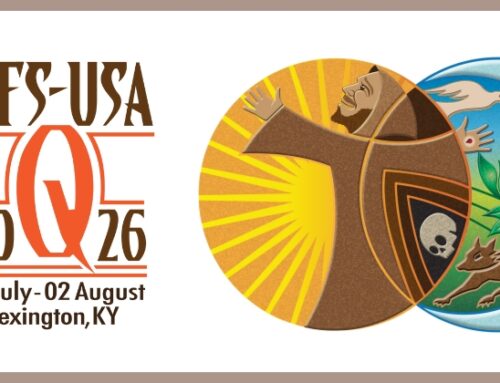By Mary Bittner, OFS
 During the Easter season, we read at Mass about the growth of the early Christian community as described in the Acts of the Apostles.
During the Easter season, we read at Mass about the growth of the early Christian community as described in the Acts of the Apostles.
“These remained faithful to the teaching of the apostles, to the brotherhood, to the breaking of bread and to the prayers. The many miracles and signs worked through the apostles made a deep impression on everyone. The faithful all lived together and owned everything in common; they sold their goods and possessions and shared out the proceeds among themselves according to what each one needed. They went as a body to the Temple every day but met in their houses for the breaking of bread; they shared their food gladly and generously; they praised God and were looked up to by everyone. Day by day the Lord added to their community those destined to be saved.” Acts 2: 42-47
What should we note from this passage? The most obvious fact is that there, in first century Jerusalem, the Gospel was being lived. The Reign of God spoken of by Jesus in the gospels was becoming a reality in the lives of ordinary people. This reality was a powerful sign to the people around them, Jews and pagans alike. Yes, there were “miracles” and “signs.” Probably just as impressive to their audience was the fact that these Christians “lived together” and “sold their goods and possessions and shared out the proceeds” according to need, that “they shared their food gladly and generously.” In short, they both worshiped and lived as a community, a community of those whose lives had been transformed by the Good News.
Moreover, within a short time the community of believers included members of diverse social groups (slaves and freemen, pagans and Samaritans, Jews and Greeks), whose lives were characterized by a unity that would have been undreamed of a few years earlier. This was not an easy, painless coming together of like-minded individuals. No. Numerous references in Acts and Paul’s epistles make it only too clear the difficulty people had in accepting others whose backgrounds differed from their own. But unity was of utmost importance to them, and they persevered.
Jesus spoke of this sort of unity in a solemn moment at the Last Supper. “I pray not only for them, but also for those who will believe in me through their word, so that they may all be one, as you, Father, are in me and I in you, that they also may be in us, that the world may believe that you sent me. And I have given them the glory that you gave me, so that they may be one, as we are one, I in them and you in me, that they may be brought to perfection as one, that the world may know that you sent me, and that you loved them even as you loved me.” (John 17:20-23)
This is such a stupendous prayer that it’s hard to believe it’s true. Think about it. Jesus asked the Father that our unity with Him and with each other might be as profound as the unity between Himself and His Father. We may forget to be surprised by this because of our familiarity with the text, but this has to be one of the most amazing and challenging passages in Scripture. Furthermore, wonderful as it may be, this unity is not just for our own benefit. Jesus asks that we “may be brought to perfection as one” so that the world may know the truth about Himself. Our unity is meant to be profound and blatantly obvious, a sign to the unbelieving world.
You can probably see where this is leading. What was true for the followers of Jesus in the year 34 A.D. should be true for us living in 2020. As Franciscans, we have pledged ourselves to live the Gospel life as Francis did, as those early Christians did. The unity Jesus called for is as critical now as it ever was.
1. Is your local fraternity a relatively homogeneous group? If so, would someone of a different background feel welcome? How do you know?
2. Are those in your fraternity deeply committed to unity, or do you have a surface, “feel good” unity that falters as soon as people disagree? Is it possible to disagree and still have unity?
3. Does your fraternity display the sort of unity that can convince the world? If not, what should you do about it?
[/fusion_text][/fusion_builder_column][/fusion_builder_row][/fusion_builder_container]




Often I see the salutation by Secular Franciscans that reads, Peace and all good. I’m disappointed it doesn’t say, Peace and all good in Christ. My salutations use to say, Peaceful thoughts and continued Prayers. Now I’m adopting Christ’s words, May we be brought to perfection as one in Christ. I added a couple words.